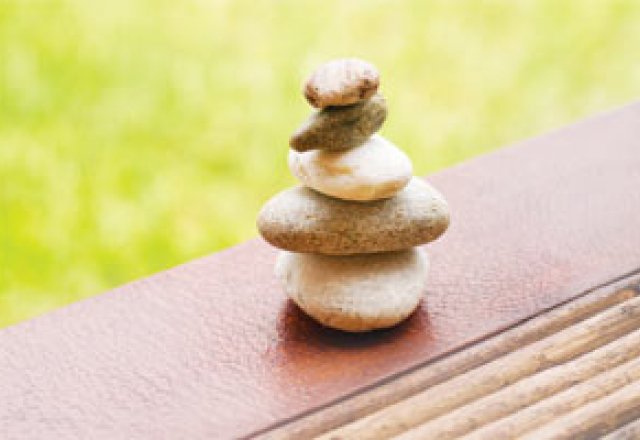
Silent retreats

Could you resist the urge to talk in a 10-day silent Vipassana meditation retreat?
Is true happiness to be found in a 10-day silent Vipassana meditation retreat? Jade de Souza finds out
Most meditation practices are geared towards clearing the mind of all thought. Vipassana meditation, however, is different. Vipassana means to see things as they really are. It gives us the opportunity to gain insight into ourselves, starting with the simple process of breath as a means to see our thoughts.
Aware of the sensations that arise in the body when completely at rest, one is able to witness the rise and fall of the physical responses that happen in time with certain emotions, thoughts and memories. By witnessing the battle between the conscious and unconscious, we can watch our cravings and aversions fade away. This is not done by trying to forget them, or by focusing on them, but by simply observing them. By giving our troubles time, they disappear.
Sound like a liberating experience? It is. It’s an experience for anyone. Rich, poor, young, old, backpackers to businessman, Vipassana attracts all kinds of people. It is not easy to learn Vipassana. The practice is necessitates a 10-day, rather restrictive course. However, it is certainly worth the challenge, as three-time Vipassana course attendee Deirdre shares. “It was mind blowing,” she says. “I was really agitated in my life, unhappy in my job and relationships. I’d tried counselling and other meditations but nothing would make me happy. When I heard about this course, I knew I had to commit to something intense if I wanted it to help myself. Now I’m finally happy and at peace.”
TEN-DAY COURSE
Ten-day Vipassana courses are offered at centres around Australia and abroad. This introduction to the practice teaches the basic methods to achieve calm; to be responsive to what life throws at you, rather than reactive.
The course is residential for the purpose of removing all distractions. A strict schedule is followed which entails rising early, eating small meals and attending meditation sessions throughout the day.
During the 10 days, there is a simple code of moral conduct each participant follows. These five ‘precepts’ are: to abstain from killing, stealing, sexual misconduct, speaking lies and taking intoxicants. “You can’t become master of your mind unless you live a wholesome life,” explains Vipassana teacher Laraine.
Within the centre, not only are there no phones, computers, books, televisions or radios, but one must also abstain from exercise, talking and making eye contact. This is to foster inward focus. “It sounds extreme, but it’s not as tough as you would imagine. Being silent ended up being the easiest thing for me,” says Deirdre.
“It's really enlightening,” she continues. “I found not being able to speak or make eye contact really liberating because it meant I couldn’t do anything for anyone other than myself! It made me realise just how much I say and do to please others and to prove myself.”
At the end of the ten days, Vipassana meditators start to look at life differently, viewing themselves and the world from a fresh perspective. From agitation in traffic to the sadness of a loved one’s illness, experiences good and bad, great and small, begin to lose their power.
Laraine shares her understanding of the practice. “I have gained a better perspective on life. I see things as they are and I don’t react negatively to situations. When tragedy befell my life a few years ago, my mind was very balanced and coped a lot better than I would have done before. It’s like keeping your head above water, you’re always swimming in ‘stuff’ but if you can keep your head up and remain objective, that’s Vipassana.”
Courses are taught by the master teacher, S.N. Goenka, who is the most current in an unbroken line of instructors stretching back to Buddha himself. At each centre, a group of assistant teachers, like Laraine, help guide students through the course, answer questions and ensure their wellbeing.
Invaluable to those who have experienced them, the Vipassana centres are run entirely by volunteers on donations. There is never any charge to participate, quite the testament to the rewards. “The organisation is very motivated to provide a peaceful place for people to have quiet time in a nice environment with nothing to worry about,” says Deirdre.
LEARNING THE TECHNIQUE
For the first three days of the retreat, meditators sit in silence, observing the cycles of their breath. With acute awareness of the sensation of air passing through the nostrils, they start to experience Anapana, which means to calm the mind.
By the fourth day, minds are calmer, more focused and better able to undertake the practice of Vipassana; observing sensations throughout the body, understanding their nature and developing serenity towards their thoughts.
At rest, the mind starts to drift through pleasant and unpleasant thoughts. “You observe the biochemical reactions happening in the body because of the mind,” says Laraine. “They manifest on the body as sensations because the mind and body are continually reacting to one another.”
She continues, “You learn to observe these sensations, but not react to them. Emotions arise so they can be released. In Vipassana, your frustrations, worries, sorrows and compulsions come to the fore and you observe them calmly as they pass out of your mind and body. You leave each session feeling lighter, with greater clarity and more balanced behaviour.”
BEYOND THE CENTRE
Vipassana is a training of the mind. “Just as you go to the gym to train your body, this is a mental exercise that has flow on effects through the body,” says Laraine.
Of course, the results come gradually through continued practice. It is unrealistic to expect all problems to be solved in 10 days. Within that time, the essentials of Vipassana can be learned so that it can be applied in daily life. The more the technique is practised, the greater the freedom it brings. Laraine recommends visiting the centre once a year and practising at least an hour each morning and an hour every night.
Deirdre reiterates, “Things happen to you every day, someone’s cruel to you, you lose a contest, a loved one, you develop an unhealthy attachment to something you know is bad for you. Regular Vipassana lets you release these things. The course clears you out and daily meditation keeps you clear.”
Think you don’t have time to attend the course, let alone meditate for hours a day? As both women have observed, the meditation gives you a huge work capacity, allowing you to achieve much more with your time at a much easier level. “I find that I get through work a lot quicker and I make clear and better decisions,” says Deirdre. “Meditation actually saves me time! My life just flows better.”
Vipassana is a way of life. It teaches us how to live peacefully and harmoniously as good and moral people. If you are happy and peaceful, those around you will be too.
All sincere people are welcome to join a Vipassana course to embrace the usefulness of the technique for themselves. Anyone who tries it will undoubtedly find Vipassana to be an invaluable tool with which to achieve and share real serenity and happiness.
For more information please visit www.dhamma.org As a campaign, Vipassana concepts have been shared with prison inmates around the world in order to diffuse tension in the self and within groups, encourage positive responses to discipline and harness mental focus for personal endeavours.
If you can't take time away from your life to experience a 10 day silent retreat, incorporate elements of mediation into your daily life. Read more on how to balance you mind and spirit, and follow us on Facebook and Twitter for daily affirmations.


